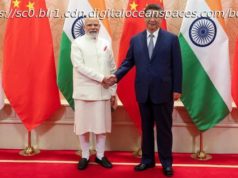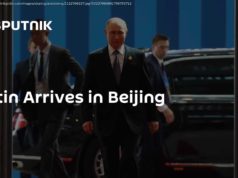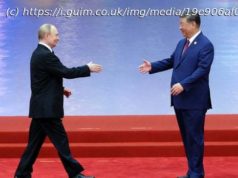Pentagon chief expected to visit Beijing despite criticising China at Shangri-La Dialogue in Singapore
The Pentagon’s decision to increase its military support for Taiwan is likely to intensify the strategic rivalry between mainland China and the United States, even as sources say US Defence Secretary Jim Mattis’s highly anticipated trip to Beijing is still set to go ahead.
According to Chinese military observers, the US has been sending mixed signals regarding its Taiwan policy. On one hand it seems unlikely Washington will send any of its senior officials to attend the opening on June 12 of its new de facto embassy in Taipei to avoid angering Beijing, yet it is still considering plans to send warships through the Taiwan Strait and boost its arm sales to the self-ruled island.
Amid that confusion, Pentagon spokesman Lieutenant Colonel Christopher Logan told the South China Morning Post that Mattis would visit Beijing sometime this year.
A second source, who is also close to the issue, confirmed that preparations for Mattis’ trip were being made by both sides.
At a regional security summit in Singapore over the weekend, the defence chief took a hard line on China. He not only criticised Beijing’s activities in the South China Sea, but also pledged the United States’ continued commitment to Taiwan by providing “defence articles and services necessary to maintain the island’s sufficient self-defence”.
Mattis said also that he would visit Beijing soon at China’s invitation, and that Washington would continue to pursue a constructive, results-oriented relationship with Beijing.
Meanwhile, Reuters reported on Tuesday that the US is considering sending a warship through the Taiwan Strait. Officials said they had even examined plans for the passage of an aircraft carrier already this year, but ultimately did not pursue them, possibly out of a desire not to upset China.
A less provocative option would be the resumption of periodic but still infrequent passages by other US Navy ships through the strait, the last of which was in July.
China’s foreign ministry spokeswoman Hua Chunying told a regular press conference on Tuesday that the US should properly handle the Taiwan issue, which China regarded as “the most important and sensitive core issue”, so as to avoid harming two-way ties and stability in the Taiwan Strait.
The Reuters report said also that Washington is considering changing its approach to arms sales to Taiwan to a case-by-case basis, which would better suit the island’s defence needs, as opposed to bundling them together.
On the issue of whether the US would send any senior officials to the opening of the new American Institute in Taiwan next week, Reuters quoted officials as saying it was unlikely as the date clashed with the planned summit between Trump and North Korean leader Kim Jong-un.
Liu Lin, an associate research fellow at the War Studies College of the PLA Academy of Military Science, said the US was trying to strike a delicate balance amid increasing competition with China.
“The US is sending mixed signals,” Liu said. “On one hand it wants to turn up the pressure and test Beijing’s reaction, but on the other it doesn’t want to be too provocative or cross any red lines.”
If Mattis’ visit did go ahead, it would be positive for bilateral relations, she said.
“It would mean the door of communication has not closed, and the two sides have not given up on maintaining dialogues.”
Liu added that while Mattis was likely to continue pressing China on issues like the South China Sea disputes and Taiwan, his visit could help to ease some of the tension between the nations’ militaries after the Pentagon withdrew China’s invitation to take part in the multilateral RIMPAC exercise.
Alexander Tan, an expert in Taiwanese politics and international affairs at the University of Canterbury in New Zealand, said that it was unlikely the US would send a high-ranking official to the opening of the new mission in Taipei as the White House had too many issues to deal with.
“I don’t think it’s a good time to rock the boat, so to speak,” he said. “It’s not only a very strong signal to China, but it also sends too strong a signal to Taiwan,” he said.
“It’s really quite sensitive, this relationship… the US has to be very careful.”
Li Jie, a Beijing-based naval expert, said that if the US changed its approach to arms sales to Taiwan, and opted to send warships through the Taiwan Strait, it could upset Beijing.
“Whether or not the US will send high level representatives [to the opening of the de facto embassy] is not the key issue,” he said.
“Its plan to change its military approach to Taiwan is much more sensitive, and that could provoke China into strengthening its military power in the region,” he said.
Additional reporting by Robert Delaney, Minnie Chan and Sarah Zheng






